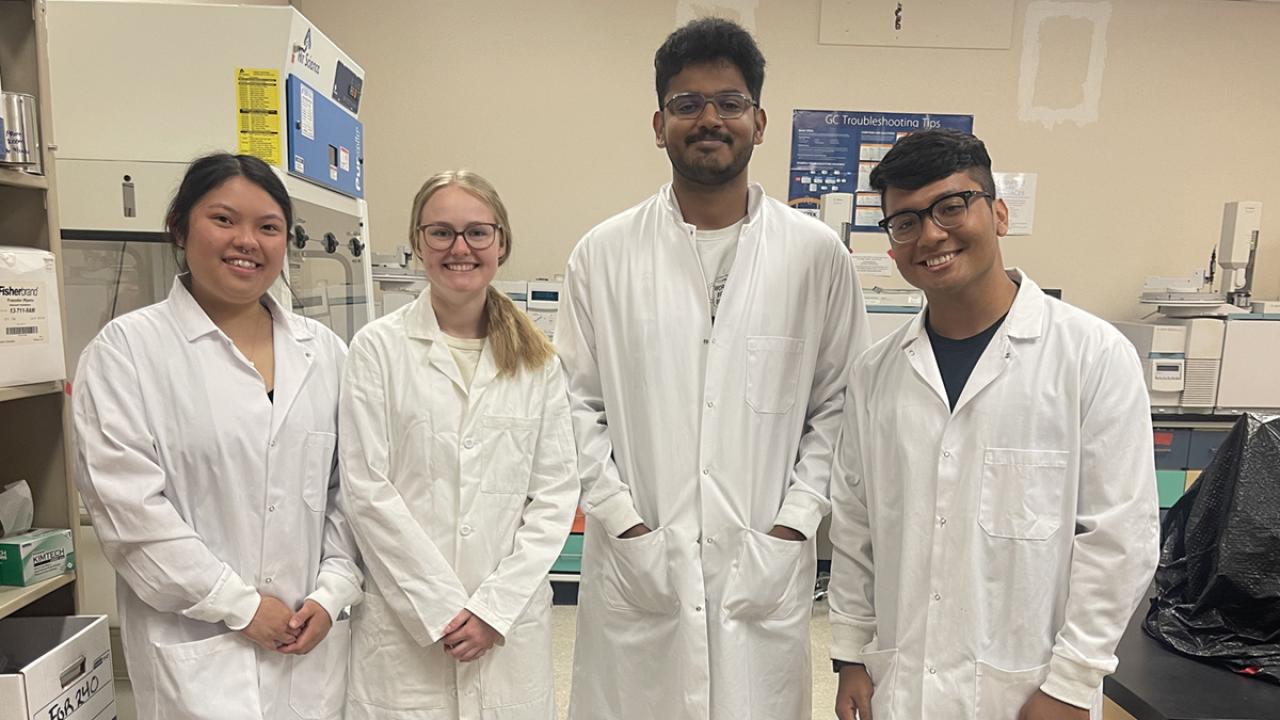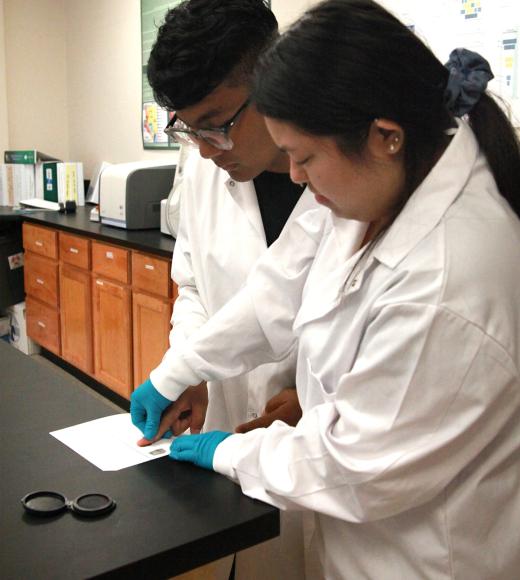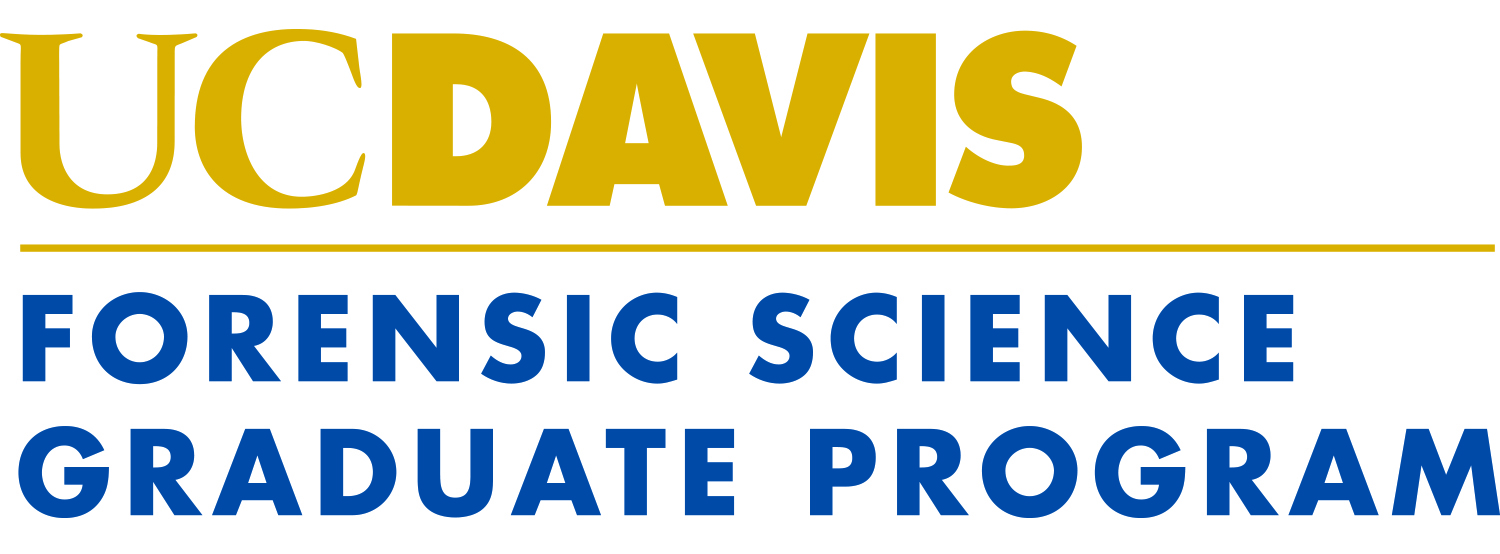
Grad Student Aldrin Alviar is “Living his Dream” at UC Davis
Aldrin Alviar knows it sounds cliché to say that crime shows are what inspired him to pursue a career in forensic science, but that doesn’t make his dream any less powerful. Programs in forensics are hard to come by in Alviar’s native Philippines, so he decided his best course of action was a background in science and earned a bachelor’s degree in agricultural biotechnology. While the fundamental techniques he learned can be applied to forensic science, he knew he needed a relevant background and applicable skills in forensics to fulfill his dreams. So he applied to the UC Davis Master’s in Forensic Science Program.
“Coming from an agricultural background, I was already familiar with UC Davis due to its outstanding performance in agriculture,” says Alviar. “Pursuing a master’s degree is not just about professional advancement and fulfilling my academic goals—it’s also about personal growth. I always want to push myself outside of my comfort zone and UC Davis was my dream school, so I’m living the dream.”
Overcoming Obstacles
Becoming a graduate student at UC Davis was not only a dream come true for Alviar, it was also his first time traveling abroad. Upon his arrival, he felt intimidated and worried about how his background compared to his classmates’. But he has been moved by the kindness he received from them and the support provided by the program.

Alviar initially struggled with the burden of tuition and living expenses. “For me, it was expensive and I had to navigate financial constraints to ensure my academic journey was sustainable,” he explains. “The program offered all the help necessary in terms of financial aid, looking for principal investigators, adjusting to the quarter system and academic advising.” A quarter into the program, Alviar was hired by the director of the Forensic Science Graduate Program, Ashley Hall, as a graduate student researcher. This allowed him to cover his financial expenses and gave him a valuable research opportunity.
“The best thing about being a grad student researcher is the opportunity to focus on your thesis.” In addition, Alviar said the opportunity to learn and be guided by Dr. Hall has boosted his personal and professional development and helped him grow his scientific thinking skills.
Since completing his first year in the program, Alviar says he most appreciated the real-world experience his professors bring to the classroom. “It's beneficial that they are working professionals, and we get to hear about the cases they have worked on,” he says. “They’ve enlightened us about the huge differences between real-life crime laboratories and the portrayals we see on screen.” Alviar adds that professors in the program are approachable and have been a good source of advice and guidance for him.
One of his biggest takeaways so far is learning how to prepare for courtroom testimony as an expert witness. “I learned about clear and effective communication and adapting yourself to explain the scientific concepts to laypeople,” says Alviar. “I also developed a deep understanding of professional ethics, such as maintaining integrity in evidence handling and presenting unbiased findings in court.”
Embracing Opportunities
Already, Alviar has grown beyond his expectations and gained invaluable experiences because of the UC Davis Forensic Science Graduate Program. He recently received an all-expense-paid Grad Student Travel Scholarship to attend the National Institute of Justice National Research Conference in DC—the only master’s student awarded the scholarship.
Interested in a Career in Forensics?
Sign up for a free online information session to learn more about the program and get answers to your questions.
“It was a truly wonderful experience and big opportunity for me,” he says. “They received 181 applications for the scholarship, and I am one of only 25 they accepted.” Alviar says it was initially intimidating to be among such highly regarded professionals, but the support he felt helped ease his nerves. “They consider us the future of this field,” he shares. “The conference was way outside of my comfort zone, but it allows me to cultivate a growth mindset and embrace new possibilities.”
Looking ahead, Alviar has his sights set on a job in a forensic laboratory, law enforcement agency or a crime lab here in the U.S. “It would be an ideal opportunity to use what I learned here in my graduate studies to gain valuable experiences and actively contribute to criminal investigations,” he says.
